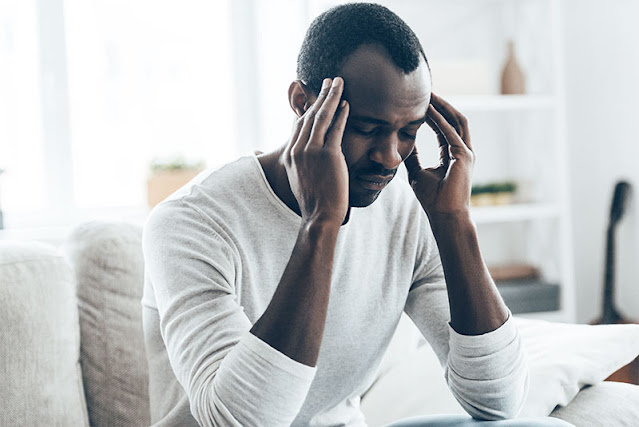10 Best Habits for Stress Management
Life is full of stress. There can be anything from small problems to major crises. It can cause stress and anxiety on its own. You can always change the situation, but you can't change how things turn out. To lessen the effects of stress, you also need to change your habits. However, you can control how you react to stress, which can hurt your health and well-being. Because of this, it is important to find ways to calm your mind and body. There is no one way to deal with stress that works for everyone.
A way to deal with stress that helps one person at home might not help another person in a different place. So, it's important to have different ways to deal with stress close by. Here are some quick and long-term ways to deal with stress in 2022 and after.
Cannabidiol should be part of your daily routine:
Stress and worry are common in today's world. In the United States, 41% of adults were worried and sad because of the pandemic. It seems like an alarming number. CBD is a booming business, and more and more people are using it to treat anxiety, chronic pain, insomnia, and depression.
CBD + THC oil is used for beauty, fitness, and stress relief
by celebrities and people who care about their health and fitness. With more
stress and anxiety in the business world and uneven work hours, CBD may be a
good way to treat GAD, panic, social anxiety, and other anxiety disorders.
Federal law says that full-spectrum, broad-spectrum, and isolated CBD products
can help with depression, anxiety, and sleep problems.
Put time aside for meditation:
According to Safe At Home Physical Therapy, Meditation has been used for a long time to help people deal with short-term stress. It also helps you deal with stress in the long run. There are different ways to meditate, and each one has its own appeal and effect. Take slow, deep breaths, or give yourself a few minutes to practice being in the moment. Meditation helps you sort out the jumbled thoughts that can make you feel stressed.
Sit in a comfortable position, close your eyes, stop
thinking, and focus on your inner calm to begin meditation. Schedule a
half-hour of meditation at the start of every day to make it a habit. Put on
some soft music to help you enjoy your meditation and stay in the moment. Join
an online group for meditation to keep to a schedule.
Take a walk:
Walking is a great way to get your mind and body moving again after being stuck. It is a great way to relieve stress, and it can work in just a few minutes. When you go for a walk, you can enjoy a change of scenery, which can help you feel better. If you give yourself a few minutes to exercise, you will feel better in your body and mind.
Take your pet for a walk in the morning or evening, or go
with a group of friends, neighbors, or coworkers to get some fresh air. It will
help you feel better and clear your mind so you can make important decisions.
Go for a long walk in the park to take a break from a frustrating task.
Learn about aromatherapy:
Try aromatherapy if you need to get rid of stress from work, anxiety, or a bad night's sleep. You can put them on your skin or breathe them in through your nose. Aromatherapy isn't too dangerous. If you're not sure what to do, talk to an aroma therapist or a health care provider.
Aromatherapy is good for relieving stress. It gives you more
energy, makes you feel better, and brings you into the present. Aromatherapy
can change brain waves, improve memory, and make people feel less stressed. In
aromatherapy, essential oils like lemon, chamomile, lavender, and bergamot are
often used. To help you relax and unwind, add essential oils to your bathwater.
You can also put a few drops of essential oils into hot water and breathe in
the scent.
Do whatever creative thing you want:
It may seem hard to get in touch with your creative side as an adult, but it's never too late. Getting back in touch with a lost passion could spark a new fire in you, which could open up new doors for you. If you haven't used your drawing, guitar playing, or writing for a magazine skill in a while, now is the time to do so. If you don't like creative things to do, you can look on the Internet for other ways to spend your free time. Even as an adult, coloring and doing Rubik's puzzles can be a great way to relieve stress.
You need to find something you love to do at home or on the
weekends. Spend time doing what makes you happy, like cooking, gardening, or
learning about eco-friendly products and materials.
Express Gratitude:
Gratitude is the ability to see how much you have to be thankful for. Think about all the good things in your life that you should be thankful for, like getting to work safely or being praised. Being grateful can help relieve stress.
Gratitude also helps you remember the ways you can deal with
stress. People who are grateful tend to have better mental health, less stress,
and a higher quality of life. Write in a gratitude journal every night to make
being thankful a habit. Every day, make a list of three or four things you're
thankful for. Share your feelings of gratitude with someone you care about,
like a family member, friend, spouse, or coworker.
Don't do things that cause you stress:
Cutting out the bad things in your life is the best way to lessen stress. Get rid of the things that make you feel more stressed. Watching the news all the time, staying connected to digital devices (like browsing the internet or texting on a phone), or using too much caffeine or tobacco can make you feel more anxious and stressed.
Change the things you do every day to get rid of stress.
Laugh more, spend time with people, get enough sleep, and don't worry about the
future when you have to deal with the present. Helping others is a good way to
keep your mind off of negative things and on something positive and mentally
rewarding. Also, don't make too many friends if you want to avoid extra stress.
Get help from people:
Having supportive people in your life is a key part of dealing with stress. Whether it's from close family, friends, neighbors, or distant friends, support from "people" gives you the confidence you need to face life's challenges with hope. Look into what you need in terms of emotional support and how to deal with stressful situations.
Stay in touch with the people you already know to help you
build a support system. Talk to a family member or friend if you need help with
your personal or professional relationships. Learn how to make more
connections. If you don't have supportive people in your life, you can join an organization
or a cause, go to a social support group, or look for professional support
through networking.
Review your lists of things to do:
When you try to do too much in one day, it can lead to confusion, anxiety, and stress. Even the best experts stick to a plan and don't get everything done in one day. Think about reducing your daily workload to help you get things done faster and with less stress.
Get people below you in the management hierarchy to help with tasks, and use your role as a supervisor to make sure a task is finished. This will help you give your teamwork while still keeping an eye on them. Work on your time management skills to reduce the stress you might feel when delivering a project. Put off the less important tasks if you want to keep your stress level down.
Prioritize Exercise and Fitness:
Whether you are a young professional or a retiree, staying in shape can help you feel less stressed out physically and mentally. Physical activity is a key part of managing stress and improving mental health. There are many exercises you can do at home or in a gym to tone your body and relieve stress.
Strength training, hiking, and kayaking are all great ways
to relieve stress and improve your physical tolerance and willpower. After
10–15 days, you should switch to new fitness activity. This will help you
think more clearly and change the way you think about stressful situations. You
can get stronger physically and mentally by looking up fitness videos and
subscribing to wellness magazines.
In conclusion:
Some experimenting may be needed to find the best ways to deal with stress. It's important to keep looking for ideas and tools that can help you deal with the inevitable things in life in a healthy way. Try to keep your stress at a level that you can handle for your own good. Practice talking to yourself in a positive way. It will help you have a better outlook on life and deal with your feelings.
Stress is a normal part of life, both at work and at home.
Set aside time for fun every day and on weekends. It will help you feel less
stressed and better organize your work time.



Comments
Post a Comment